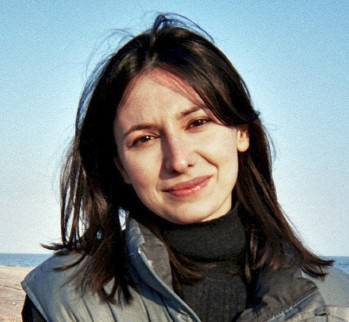VIEWPOINT
'Mischievous abandon' and solidarity in a first creative writing class

Krasikov See larger image
During my junior year at Cornell, I signed up for my first writing course -- a class called The Art of the Essay. Walking up the hill to drop off my writing sample, I caught up to Scott Aaronson, a kid who lived in my house. Scott was 18 and already a senior starting his master's in artificial intelligence. Though it was the middle of January, he was wearing a T-shirt and rubber house slippers without socks. Scott could usually be found cackling nerdily in the basement computer room, or blocking my way during kitchen cleanups, where he'd stand pondering a dishrag.
Now, to my surprise, he was clutching a rolled-up piece of paper and heading for the same drop-box I was. "Hey, Scott," I asked, "what's your submission about?"
"Big numbers," he said.
Probably fan fiction , I thought.
When we returned to the house, he printed out a copy. His essay was indeed the history of big numbers, and how each successive generation of mathematicians sought ever bigger numbers, prompting cryptologist Alan Turing to invent the "Busy Beaver," a theoretical machine that bustled along a tape of squares marked with 1's and 0's. Turing's search for the biggest number led him finally to the discovery of modern computing. I read to the end without stopping. Scott made the epic search read like the Argonauts' quest for the Golden Fleece.
Scott and I got into the class, as well as nine other students all pursuing their particular preoccupations. I remember Meghan, an aspiring flight attendant, who wrote about the scourge of public urination in Paris, and Will, a quiet environmental science major who once crossed a bridge in Guatemala and watched a man behind him stumble, fall and slowly drown in the rapids below. There was Stacy, an unjustly beautiful girl who wrote about running her parents' karaoke bar, and Justin, a rock-climbing instructor who wrote about having to part with his first doll after getting the message that boys didn't play with dolls. Our teacher, Lydia Fakundiny, enjoined us to read our essays aloud to each other slowly and with feeling.
"Never sell your words short," she'd command when one of us relapsed into mumbles. Steepling her long fingers, she'd signal for the reader to start again. Lydia had us learn by mimicking the masters, Hemingway and Virginia Woolf, but the real fun came in mimicking each other; by the end we'd come to know one another's writing so well that even Lydia couldn't guess which was original and which the clever imitation.
The memory of that class moved me to apply to Iowa's writing program a few years later. I sought the "creative community" that I'd heard other writers gush about. I did find a community, but it was less playful, more … courtly. The writers were older and already involved in "complicated" and sometimes neurotic relationships with their craft. After a while I began to wonder if my memory of the mischievous abandon of Lydia's class, and the solidarity I'd felt there, was as unreliable as the memory of first love.
A few months ago, I saw Scott again. We'd arranged to have brunch with some old friends the day after New Year's. Another January afternoon, but this time Scott was more appropriately dressed in a scarf and pea coat. He'd become a computer science professor and was still writing just as charmingly about topics I could barely understand. He was keeping a popular blog at MIT, where he chronicled his "metaphysical spoutings" about quantum complexity. I told him about my first book of short stories. Just sitting in that booth in Harlem for half an hour conjured up the peculiar madness and camaraderie of our first writing class at Cornell.
Sana Krasikov '01 is the author of "One More Year," which was a finalist for the 2009 PEN/Hemingway Award and The New York Public Library's Young Lions Fiction Award. Krasikov won the 2009 Sami Rohr Prize for Jewish Literature and was one of the National Book Foundation's "5 under 35" honorees for 2008.